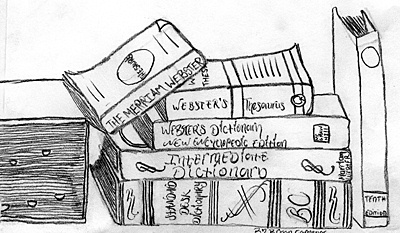All Nonfiction
- Bullying
- Books
- Academic
- Author Interviews
- Celebrity interviews
- College Articles
- College Essays
- Educator of the Year
- Heroes
- Interviews
- Memoir
- Personal Experience
- Sports
- Travel & Culture
All Opinions
- Bullying
- Current Events / Politics
- Discrimination
- Drugs / Alcohol / Smoking
- Entertainment / Celebrities
- Environment
- Love / Relationships
- Movies / Music / TV
- Pop Culture / Trends
- School / College
- Social Issues / Civics
- Spirituality / Religion
- Sports / Hobbies
All Hot Topics
- Bullying
- Community Service
- Environment
- Health
- Letters to the Editor
- Pride & Prejudice
- What Matters
- Back
Summer Guide
- Program Links
- Program Reviews
- Back
College Guide
- College Links
- College Reviews
- College Essays
- College Articles
- Back
Writing and Nerdfighting
Because of John Green, I want to be a writer. He and his brother, Hank Green, self-built their YouTube community, Nerdfighteria that promotes curiosity, creativity and collaboration. With Nerdfighteria, John Green wrote his best-selling novel The Fault in Our Stars. Its clever John-Updike-and-David-Foster-Wallace-influenced prose dealt with Maslow’s hierarchy of needs, sums of infinite series and love. Teenagers worldwide discussed these themes via sites like YouTube, Tumblr and Goodreads, inadvertently connecting a generation.
Its success showed me the significance of books and media. Specifically, it brought passion and critical discussion into my high school.
Picture this: my back is a question mark against my cold classroom chair. My head is down and I’m reading White Noise by Don Delillo. I’m dressed in jeans and a band t-shirt. The quote, “No one sees the barn” runs through my head as I half-listen to the tepid class discussion. Suddenly, everything changes.
“We have no reason to fear oblivion” says a student, “I learned that from John Green.”
The class becomes abuzz. Hands shoot into the air and excited comments explode like fireworks out of students’ mouths.
“I’ve read John Green, too!” says a girl in the back.
“Looking for Alaska is one of my all-time favorite books!” adds another girl.
I look up from White Noise grinning. I raise my hand.
“What do you think Pudge learned by the end of Looking for Alaska?” I ask.
I’m answered with a variety of perspectives.
“He learned how to madly love a girl and move on.”
“He learned that how we idealize human beings is often not how they actually are.”
“He learned that people die searching for ambiguous answers. But in order to escape the ‘labyrinth of suffering’ you need to pull yourself out.”
A passionate discussion follows. Silent students speak. Peers voice their interests. The discussion shifts from John Green to personal experience, politics and culture. Analysis of tattoos, Woody Guthrie, Rage Against the Machine and the “Walking Dead” are thrown into the mix.
Each student’s chance to voice their interests makes them more eager to learn.
Afterward, four students check out The Fault in Our Stars from the library. I lend my copy to three students. Nerdfighters share educational Vlogbrother videos with their English, history and science teachers.
From this experience, I learned solitary acts such as writing, reading and video-viewing can become social acts. They allowed our teachers to connect with us and students to connect across mutual interests.
They are doorways to the world.
That’s why John Green made me want to be a writer- I want communities like his to continue. Maybe one day my stories will serve such a purpose. And maybe they won’t.
But I’ll always be a Nerdfighter. I’ll always be ready to learn something new.

Similar Articles
JOIN THE DISCUSSION
This article has 0 comments.
